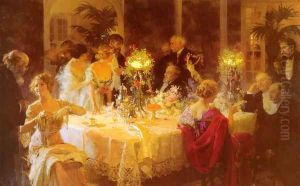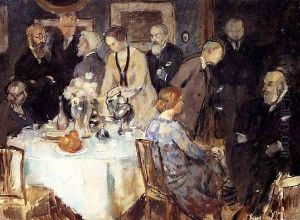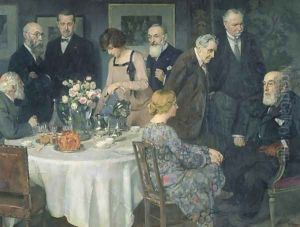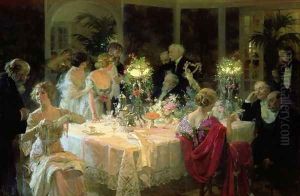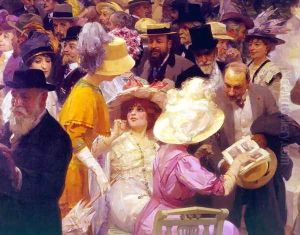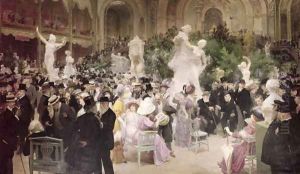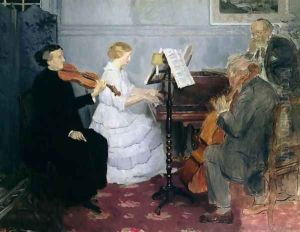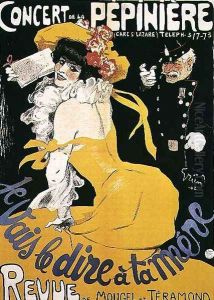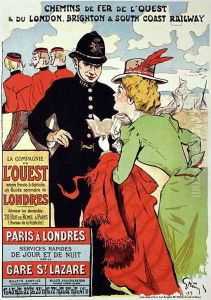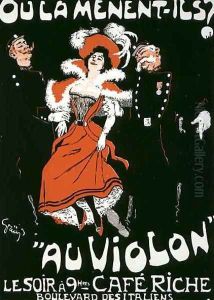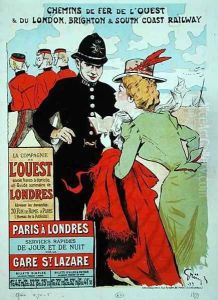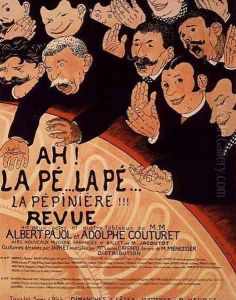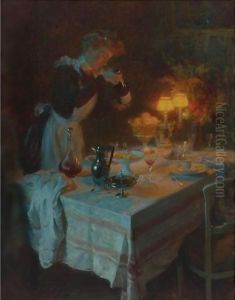Jules Grun Paintings
Jules-Alexandre Grün was a French painter and illustrator born on May 25, 1868, in Paris. He is often remembered for his posters, caricatures, and paintings that captured the lively spirit of Parisian society during the Belle Époque. Grün's work was characterized by a vibrant use of color and a keen observation of social interaction, often infused with a sense of humor and satire.
Grun received his artistic training at the École des Beaux-Arts in Paris under the tutelage of Jean-Joseph Benjamin-Constant and Jean-Paul Laurens, two prominent French painters of the time. He began his career as an illustrator, creating artwork for magazines such as 'Le Rire' and 'L'Assiette au Beurre.' His illustrations brought him recognition and he soon transitioned into poster art, which was experiencing a golden age in Paris thanks to artists like Jules Chéret and Henri de Toulouse-Lautrec.
In 1899, Grün created one of his most famous posters, 'La Fête de Neu-Neu,' which exemplified his ability to capture the exuberance of Parisian nightlife. Alongside his posters, he painted scenes of daily life, landscapes, and portraits. His paintings often depicted the cafes, cabarets, and dance halls that made Parisian culture so vibrant at the turn of the century.
Grun was not only an artist but also a sociable figure in the Parisian art world. He was a founding member of the Société des Artistes Humoristes and regularly participated in their exhibitions. His work was exhibited at the Salon des Artistes Français, where he was awarded a silver medal in 1901. Grün's popularity extended beyond the art world, as he designed sets and costumes for the theater, further embedding himself in the cultural fabric of Paris.
Despite his success, Jules Grün's name is not as widely recognized today as some of his contemporaries. He died on February 10, 1934, in Paris. Nevertheless, his contributions to the art of illustration and poster design remain significant, and his paintings continue to provide a colorful and insightful portrayal of life during the Belle Époque.
